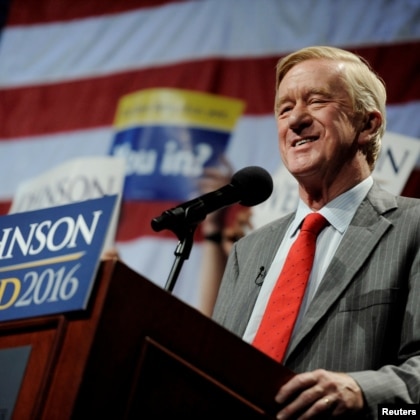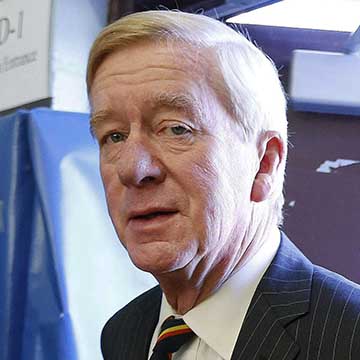“When I go around New Hampshire and mention Mr. Trump’s name to people, I get frowns and thumbs down in response, these long faces. … But I know it’s going to be a long haul.”


Bill Weld
Lawyer at a Boston law firm
- Birthdate: July 31, 1945
- Age:
- Hometown: Smithtown, New York
- Website | @GovBillWeld
“I hope to see the Republican Party assume once again the mantle of being the party of Lincoln. It upsets me that our energies as a society are being sapped by the president’s culture of divisiveness in Washington,” he said when announcing his bid in New Hampshire.
Accomplishments: After earning a law degree from Harvard University, Weld served as a lawyer in the Justice Department and as U.S. attorney for Massachusetts. He was governor of Massachusetts from 1991-1997 and was elected twice by comfortable margins. In 2016, Weld joined the Libertarian Party, serving as running mate to the party’s 2016 candidate, Gary Johnson, and the duo received about 4.5 million votes nationwide. Weld returned to the Republican Party this year, saying it was the best place from which to challenge Trump.
Foreign policy: Weld is a longtime supporter of free trade and has criticized President Trump’s tariffs on Chinese goods. He has also said the United States should rejoin the international Paris climate treaty from which Trump withdrew.
What sets him apart: Weld was the first Republican to announce his intention to challenge Trump in the primaries. While the primary race is not expected to be a significant hurdle for Trump because of his high approval rating among Republicans, it could foreshadow problems ahead for the president. It is rare for an incumbent president to face a notable primary challenge, and the last two that did, George H.W. Bush and Jimmy Carter, both lost their attempt to win re-election.
Platform: Weld supports a simplified tax code and reduced taxes for all, advocates for fewer trade barriers and wants to reduce the size of the U.S. government, including eliminating the Education Department. He also backs the use of medical marijuana for veterans suffering from post-traumatic stress disorder and says states should have the ability to legalize recreational marijuana.
